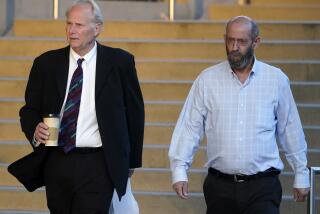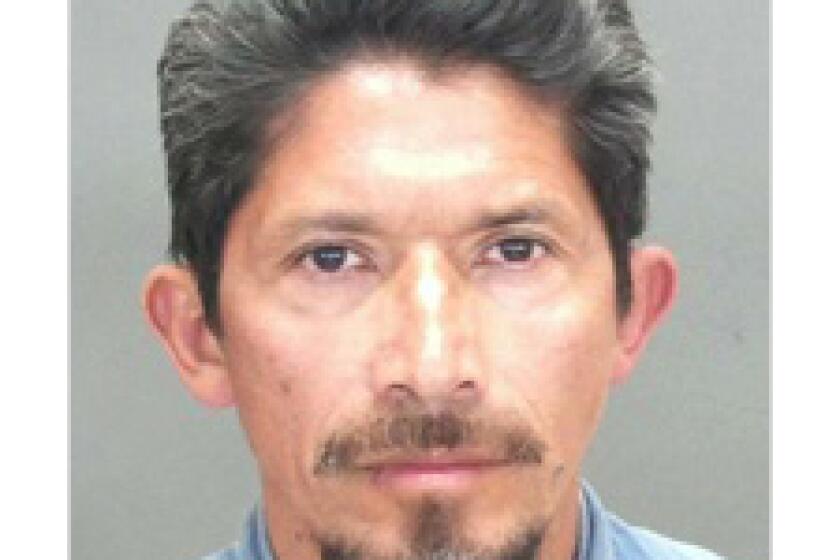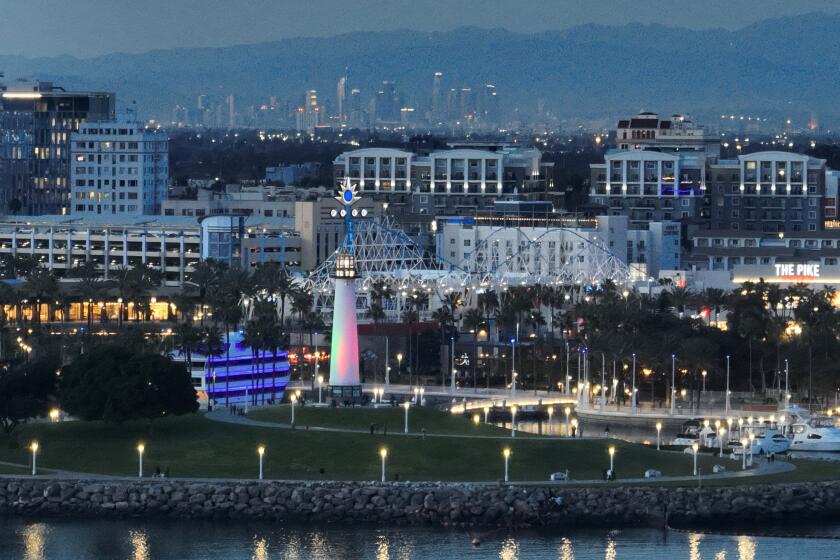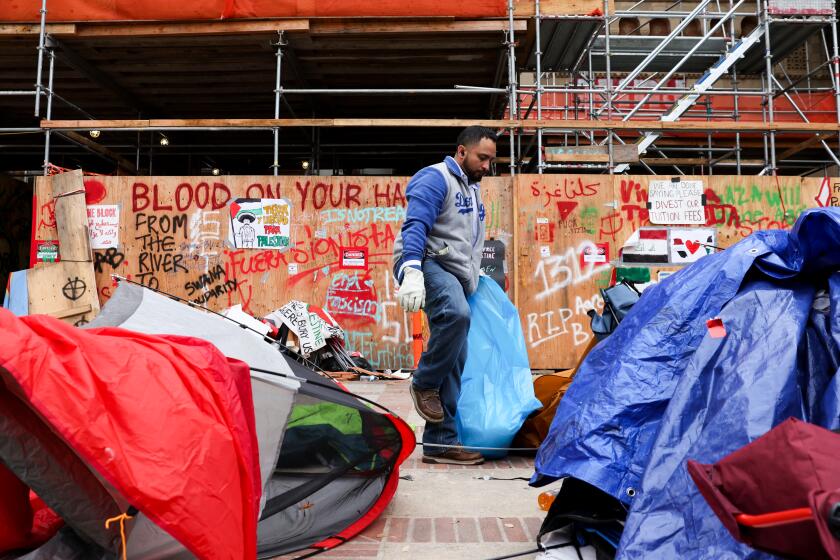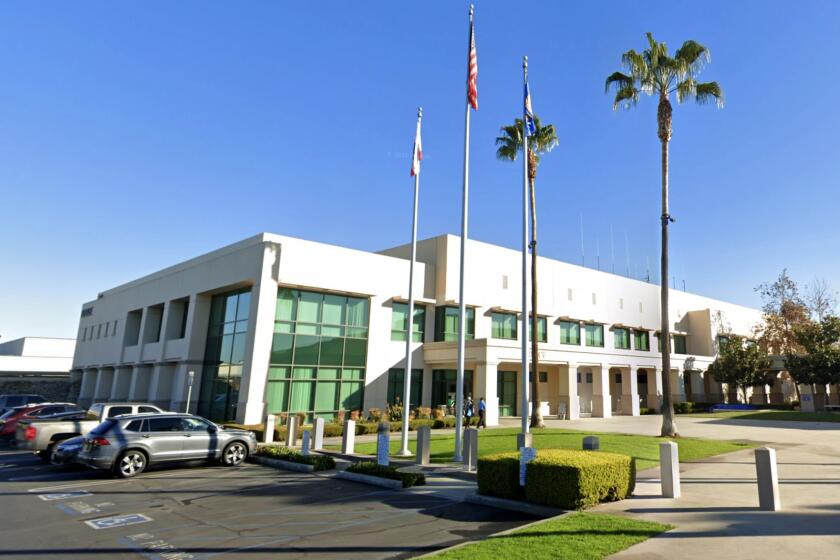The past is a present for visitors to archives bazaar
Anita Martinez considers herself the historian of her family’s century in Los Angeles. The office manager from Lincoln Heights safeguards the old photos, the scrapbooks and the World War II love letters between her grandparents.
So when she heard about an unusual exhibition of historical archives on Southern California life, she hurried to the Huntington Library in San Marino on Saturday. There she joined more than 800 other amateur, student and professional historians for a feast of information on such varied topics as Chicano culture, early Hollywood movies, gay liberation, pioneering doctors and the long-gone Los Angeles trolleys.
What organizers billed as the first annual Los Angeles Archives Bazaar showcased exhibits from 30 universities, libraries, museums, private collectors, hospitals and cities, all inviting researchers to visit troves that might mistakenly be considered inaccessible. The groups are among the 223 members of the LA as Subject Archives Forum, a USC-based collective that promotes the study of the Los Angeles region and lists the area’s resources on a website: www.usc.edu/libraries/archives/arc/lasubject.
“For me, Los Angeles history is fascinating,” said Martinez, adding that she was happy to learn that so many archives were eager for visitors.
She is looking for a place to possibly donate her photo collection -- and may have found one Saturday in the UCLA Chicano Studies Research Center.
Saturday’s five-hour event featured a display by the Margaret Herrick Library of the Academy of Motion Picture Arts and Sciences. It included a glamorous 1934 photograph of Jean Harlow in front of her Beverly Glen home, next to one showing mourners at her funeral in Glendale three years later.
A copy of a 1934 menu from the Brown Derby offered corned beef hash with poached eggs for 85 cents and grilled tenderloin steak for $1.50.
Barbara Hall, a Herrick archivist, said the library wanted “to make sure that people outside the film community know what we have in our collection.”
The ONE National Gay and Lesbian Archives, housed near USC, showed that contemporary social issues can have deep roots. Archives director Michael Palmer pointed to an August 1953 edition of ONE, a pioneering gay publication. The cover story? “Homosexual marriage.”
Gays and lesbians “have been part of all aspects of Los Angeles life since the very beginning,” Palmer said.
Avery Clayton was at the table for the Mayme A. Clayton Library, a huge collection of African American literature and cultural items that his mother, who died last month, gathered and kept at her West Adams home. Plans are afoot for a museum in Culver City.
“My mother’s part was to assemble the collection. My part is to bring it to the world,” said Clayton, the library’s executive director.
The exhibit featured a copy of “Roots,” autographed by author Alex Haley, and a poster for the 1931 movie “Lying Lips,” promoting actress Edna Mae Harris and “an all-star colored cast.”
Among the bazaar’s other participants: Loyola Marymount University, Occidental College, the Historical Society of Long Beach, the St. Vincent Medical Center Historical Conservancy, the Los Angeles City Archives and the Center for the Study of Political Graphics.
“It’s a paradox,” said Philip J. Ethington, a USC history professor and one of the event’s organizers.
“L.A. has a reputation for not having any history. But, of course, the history is deep and profound, and there is a terrific hunger for it.”
More to Read
Start your day right
Sign up for Essential California for news, features and recommendations from the L.A. Times and beyond in your inbox six days a week.
You may occasionally receive promotional content from the Los Angeles Times.


